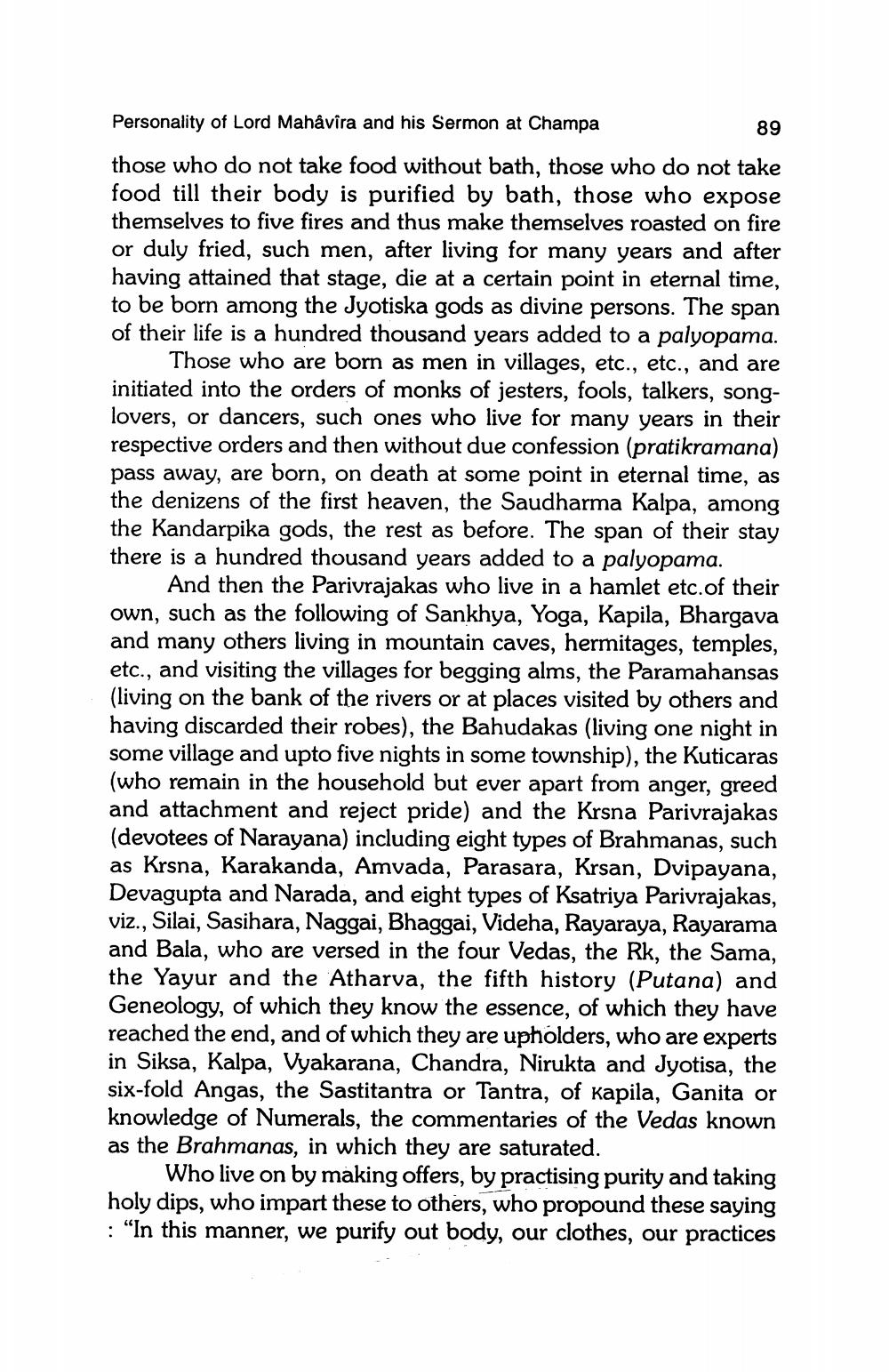________________
Personality of Lord Mahâvîra and his Sermon at Champa
89
those who do not take food without bath, those who do not take food till their body is purified by bath, those who expose themselves to five fires and thus make themselves roasted on fire or duly fried, such men, after living for many years and after having attained that stage, die at a certain point in eternal time, to be born among the Jyotiska gods as divine persons. The span of their life is a hundred thousand years added to a palyopama.
Those who are born as men in villages, etc., etc., and are initiated into the orders of monks of jesters, fools, talkers, songlovers, or dancers, such ones who live for many years in their respective orders and then without due confession (pratikramana) pass away, are born, on death at some point in eternal time, as the denizens of the first heaven, the Saudharma Kalpa, among the Kandarpika gods, the rest as before. The span of their stay there is a hundred thousand years added to a palyopama.
And then the Parivrajakas who live in a hamlet etc. of their own, such as the following of Sankhya, Yoga, Kapila, Bhargava and many others living in mountain caves, hermitages, temples, etc., and visiting the villages for begging alms, the Paramahansas (living on the bank of the rivers or at places visited by others and having discarded their robes), the Bahudakas (living one night in some village and upto five nights in some township), the Kuticaras (who remain in the household but ever apart from anger, greed and attachment and reject pride) and the Krsna Parivrajakas (devotees of Narayana) including eight types of Brahmanas, such as Krsna, Karakanda, Amvada, Parasara, Krsan, Dvipayana, Devagupta and Narada, and eight types of Ksatriya Parivrajakas, viz., Silai, Sasihara, Naggai, Bhaggai, Videha, Rayaraya, Rayarama and Bala, who are versed in the four Vedas, the Rk, the Sama, the Yayur and the Atharva, the fifth history (Putana) and Geneology, of which they know the essence, of which they have reached the end, and of which they are upholders, who are experts in Siksa, Kalpa, Vyakarana, Chandra, Nirukta and Jyotisa, the six-fold Angas, the Sastitantra or Tantra, of Kapila, Ganita or knowledge of Numerals, the commentaries of the Vedas known as the Brahmanas, in which they are saturated.
Who live on by making offers, by practising purity and taking holy dips, who impart these to others, who propound these saying "In this manner, we purify out body, our clothes, our practices




